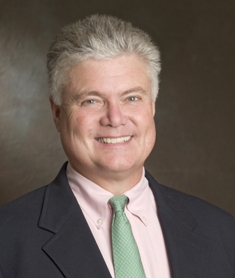The Distracted Family: 10 Key Principles to Managing Your Family’s Life – By Dr. Edward M. Hallowell, MD
 Do you feel busier than you’ve ever been before? Do you have more to do than ever with less time to do it? Do you wonder if you can keep up the pace much longer? Are you overbooked and about to snap? Do you answer the simple question “How are you doing?” with a frazzled, “Crazy busy” reply?
Do you feel busier than you’ve ever been before? Do you have more to do than ever with less time to do it? Do you wonder if you can keep up the pace much longer? Are you overbooked and about to snap? Do you answer the simple question “How are you doing?” with a frazzled, “Crazy busy” reply?
From his presentation CrazyBusy: Overstretched, Overbooked, and About to Snap – Strategies for Handling Your Fast Paced Life, Dr. Edward M. Hallowell will show you how to survive in an ultra-competitive, ultra-fast, attention deficit society and remain sane by following these 10 key principles to managing modern life.
1. Do what matters most to you (the most common casualty of an excessively busy life). Don’t spread yourself too thin – you must choose; you must prioritize. In order to both do well and be happy, you must say “No thank you” to many projects, people and ideas. “Cultivate your lilies and get rid of your leeches.”
2. Create a positive emotional environment wherever you are. When the emotional atmosphere is less than positive, people lose flexibility, the ability to deal with ambiguity and complexity, trust, enthusiasm, patience, humor, and creativity. When you feel safe and secure, you feel welcomed and appreciated. You think better, behave better and are better able to help others.
3. Find your rhythm. Get in the “zone,” follow your “flow” – research has proven that this state of mind elevates all that you do to its highest level. When you find your rhythm, you allow your day to be taken care of by the automatic pilot in your brain so the creative, thinking part can attend to what it is uniquely qualified to attend to.
4. Invest your time wisely so as to get maximum return. Try not to let time be stolen from you or let yourself fritter it away – use the Time Value Assessment to guide you in what to add, preserve, cut back on, and eliminate.
5. Don’t waste time screen-sucking (a modern addiction: the withdrawal of looking at a computer, BlackBerry, etc.). Break the habit of having to be near your computer at all times by changing your environment or structure – move your screen to a different room, schedule an amount of time you are allowed to be on the computer, or plan mandatory breaks.
6. Identify and control the sources of gemmelsmerch in your environment. (Gemmelsmerch is the force that distracts a person from what he or she wants to or ought to be doing. It is as pervasive and powerful as gravity.)
7. Delegate. Delegate what you don’t like to do or are not good at, if you possibly can. Your goal should not be to be independent, but rather, effectively interdependent. You do for me and I do for you – this is what makes life possible.
8. Slow down. Stop and think. Ask yourself, what’s your hurry? Why wake up already impatient, rush around and try to squeeze in more things than you should, thereby leading you to do all of it less well? Your hurry is your enemy.
9. Don’t multitask ineffectively (avoid frazzling). Give one task your full attention. You will do it better. You may eventually get so good at it that your conscious mind can attend to other aspects of the task other than menial ones. This is the only way a human can multitask effectively.
10. Play. Imaginatively engage in what you are doing. This will bring out the best part of your mind, focus you on your task, and make you more effective and efficient.
BIO
Edward Hallowell, M.D., Ed.D. (Honorary), is a child and adult psychiatrist, NY Times bestselling author, world-renowned speaker and leading authority in the field of ADHD. He was a faculty member at Harvard Medical School from 1983 to 2004, graduated from Harvard College and Tulane School of Medicine, and is the founder of The Hallowell Centers for Cognitive and Emotional Health in Sudbury, MA and New York City. Dr. Hallowell has authored 18 books and is a highly recognized speaker around the world. His books and lectures focus on various psychological, family and social topics and offer groundbreaking advice on ADHD, raising happy children, and staying connected in this “crazybusy” world. He has been featured on Dr. Oz, Oprah, Good Morning America and interviewed for The New York Times, Newsweek, Time Magazine, and many other publications. For more about Dr. Hallowell visit: www.crazybusywithdrhallowell.com.















